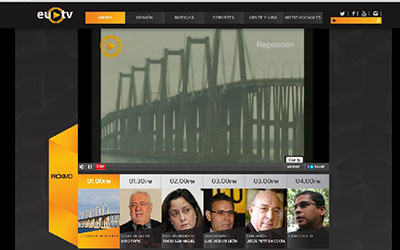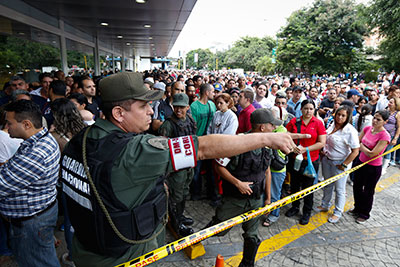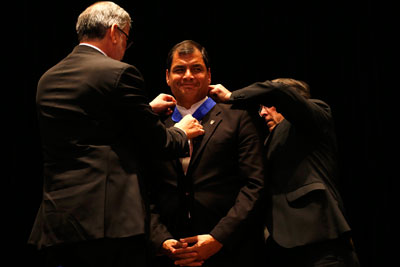John Otis/CPJ Andes Correspondent
John Otis, CPJ's Andes correspondent for the Americas program, works as a correspondent for Time magazine and the Global Post. He authored the 2010 book Law of the Jungle, about U.S. military contractors kidnapped by Colombian rebels, and is based in Bogotá, Colombia.

Web-based TV opens space for critical voices in Venezuela
With its low budget décor and grainy images, EUTV has the look and feel of small-town community television. But the Web-based TV station that went live on November 18 has much larger ambitions: It intends to be the primary source for Venezuelans who covet independent television news.
Venezuela forces ISPs to police Internet
The concept of network neutrality holds that all Internet traffic should be treated equal and that Internet Service Providers, or ISPs, should serve as free-flowing gateways for information rather than as filters. But in politically polarized Venezuela, neutrality is an increasingly rare commodity and now ISPs are feeling the heat.

Venezuela tries to suppress reports of economic upheaval
Amid skyrocketing inflation and shortages of basic goods, Venezuelan authorities claim that an “economic war” is being waged against the socialist government of President Nicolás Maduro. The government is striking back by forcing stores to discount prices, by arresting business owners accused of hoarding–and by targeting journalists trying to cover the grim economic news.
Bolivian government gangs up on Página Siete
Bolivia’s loss of territory along the Pacific coast during a 19th-century war with Chile remains an extremely sensitive issue in the landlocked nation. Every March 23, patriotic “Day of the Sea” ceremonies mark the calamity, which Bolivia hopes to reverse through a lawsuit filed this year against Chile at the International Court of Justice.
Protests in Catatumbo add to risk in Colombia
Reporting from Catatumbo, a region in northern Colombia dominated by guerrillas and drug traffickers, has always been challenging. But working conditions for journalists have seriously deteriorated amid nearly two months of anti-government protests pitting thousands of angry peasant farmers against soldiers and riot police.

Ecuador loses investigative journal Vanguardia
Like the death of a loved one. That’s how Juan Carlos Calderón, editor of the newsmagazine Vanguardia, described the June 28 closing of the newsweekly that for eight years published hard-hitting investigations about public officials and faced frequent government harassment. Yet the final days of Vanguardia were almost as controversial as its stories.
